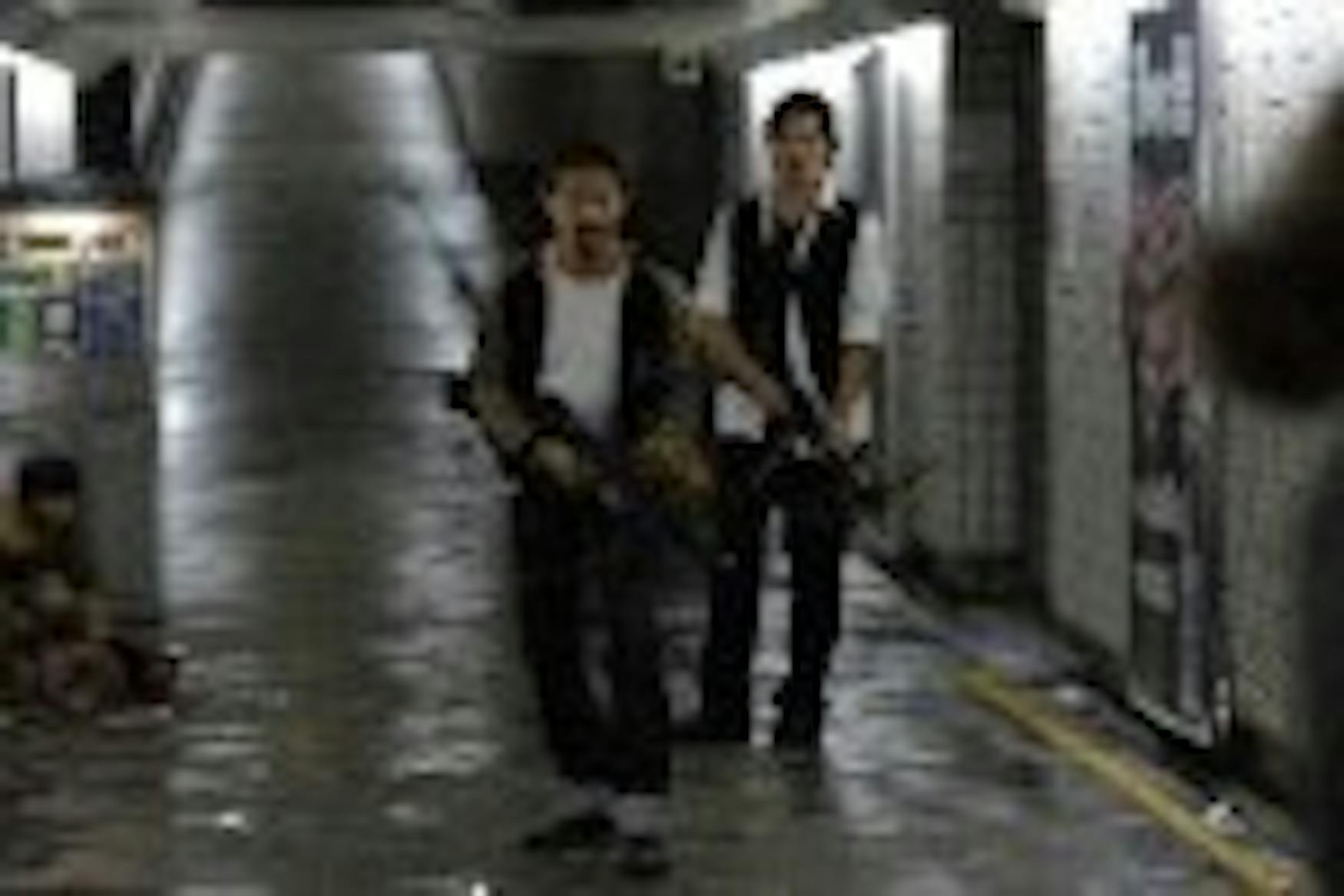Daybreakers' offers insights
I did not want to see Daybreakers, nor did I want to like this supernatural adventure created by the Spierig Brothers. To me, the film was merely the latest foul, bloodsucking spawn to spring forth from the womb of the entertainment industry, which-like some kind of gothic Octomom-was getting itself pregnant on a regular basis in the hopes one of its bastard children would grow up to be like its older sibling, Twilight. And, Lord knows, nothing that shares genre genetics with that mess (Interview with the Vampire aside) could possibly be any good.Daybreakers, which stars Ethan Hawke as hematologist Edward Dalton, has a plot that's fairly similar to the Spierigs' only other major motion picture, Undead; apparently, despite the earlier release's atrocious reviews, the Spierigs decided to take another shot at the "mysterious plague turns everyone into [INSERT RANDOM SUPERNATURAL BEING HERE]" plot. This time, however, instead of citizens becoming an army of, well, the undead, the majority of the world's inhabitants have become vampires. The human population-or, what's left of it, at least-is hunted as a source of life-giving blood. But Dalton, despite having become a vampire dependent on the red stuff for survival, despises the idea of drinking blood harvested from humans and thus readily becomes involved in an underground movement to cure vampirism.
While Daybreaker's plot is not particularly novel (the film, unfortunately, is a victim of the entertainment times and the recent influx of vampire films), the story is well-told, and the way in which the dark nature of the plot is conveyed is masterful. Certain scenes-such as one young vampire's suicide by sunlight-are both visually stunning and emotionally unsettling and articulate a great deal regarding the characters' true sentiments toward the state of their bodies.
It's fortunate that the Spierig brothers have a firm grasp on the visual realm, as their skills in the dialogue department are somewhat lacking. Occasionally, the film's dialogue is incredibly unnatural, such as when one character relates how-upon discovering that he had cancer-he asked God for a "solution that was reasonable," or when another describes the world as being as safe as "bareback ridin' a five-dollar whore."
Wooden dialogue aside, however, Daybreakers may be interpreted as one of the few well-done social commentaries executed by a vampire film: As the plot progresses and the vampire population begins to run out of human blood, higher-ranking members of society begin to execute those who have become mentally deranged as a result of starvation, deeming them "things" that must be done away with for the good of the Earth's remaining vampire populace. With regard to the actual plot, though, bits of background information are unfortunately few and far between: We are well aware, for example, of what happened after the vampire plague descended, but we have no idea what caused former humans to turn against their still-mortal brethren following the spread of the vampirism-causing infection.
Another aspect that causes Daybreakers to fall short of being a "great" film rather than a "very good" one is what may be either the Spierigs' arrogance or simply their desire to saturate the film with a montage of their best ideas. It seems the Spierigs are entirely aware of when they create a striking scene due to said scene's inclusion in the film several hundred times. For example, the first time a horde of starving vampires tear into a human, the audience says, "My goodness! That was horrifying and amazing!" However, the next time the scene is shown, it has less of an impact, and when the scene reappears a third, fourth and occasionally fifth time, the concept becomes less visually stunning and more ridiculous.
My only other complaint is regarding the film's abrupt ending: Very rarely do I say that a film is too short, but Daybreakers was simply not long enough. Indeed, it feels as though Daybreakers was edited to end 30 minutes prior to its actual ending. Thus, when the credits suddenly appeared, the sudden nature of Daybreaker's conclusion left me feeling somewhat like you'll feel after reading this sentence.



Please note All comments are eligible for publication in The Justice.